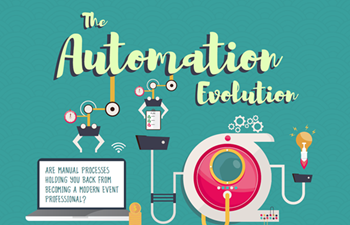Festival event organizers have taken tremendous steps to reduce the amount of waste generated by their events. The most popular UK festivals like Glastonbury have introduced stainless steel cup alternatives after noting that one million plastic bottles were used each year.
However, the sustainable trend is taking longer to materialize in the corporate sphere despite its dominance in the events sector. In the US, business meetings generated $845 billion in a single year. The success of the corporate event sector shows that professional conferences are likely one of the biggest culprits of environmental waste.
So how can we make plastic-free events for conscious professionals? In this blog post, we show you three key areas that event organizers should target. Use these tips to effectively reduce the carbon footprint of your conferences and help to make this event type more sustainable.
1. Eco-friendly places
An integral part of any event planner’s process is picking the right venue. If you’re opting for a sustainable conference, ensuring that your venue aligns with these values is paramount.
Small events
For example, if you’re planning a small affair in a restaurant setting, you need to find out about the venue’s usual processes. Do the kitchen staff purchase from plastic-free suppliers? Do the bar staff promote the use of paper straws? These little details account for a lot in terms of creating an eco-friendly event. It will also save you from embarrassment, avoiding mishaps like your guests accidentally being served a drink with a plastic accessory.
Scandinavian styled restaurant, ABC Kitchen located in New York City is an oasis of ethical eating. Their strong ethos partnered with their promise to sustainably source their goods and to adhere to fair labor standards are great signs that you will be in ethical hands if you’re eating at their table.
Large events
If you are organizing a large event like an exhibition, seminar or training session, you need to look out for large conference halls with environmental initiatives. It is hard to avoid the excess energy used in these types of buildings because of their sheer size and scope. However, it is possible for group venues to ditch single-use plastics to do their bit for the environment.
Take a look at the The Green Building in New York City - a venue that is made up of 6,000 square feet of restored space that promotes sustainable events at its core. They proudly cater for corporate and branding events with a jaw dropping portfolio of big brand names like Free People and MINI Clubman.
2. Eco-friendly products
Championing plastic-free places is a practical step towards tackling waste first-hand. The environmental impact of your venue is generally the largest part of switching to sustainable efforts. However, if you’re trying to promote the fact that your business event is plastic-free to professionals, make your efforts known with physical items. Picking plastic-free products is an obvious way to demonstrate your green ethos as these are often the only tangible part of an event.
Start with Straws
According to the RAW foundation, stamping out the straw should be the first item on your sustainable action plan. This is supported by Coachella’s sustainable incentives to effectively recycle drink waste. You can receive free fresh water for every 10 returns to their recycling store.
If you’ve picked a sustainable venue, they will often have their own practices in place to tackle this. A bar or a restaurant may already use steel straws as standard. However, if your event is mainly organized by you (in the case of independent conferences), you can purchase plastic-free products like biodegradable straws. Or, you can rely on plastic-free people for a helping hand.
3. Eco-friendly People
Events are often about the people. The people who organize them, the people who run them and the people who attend them. So when it comes to catering for conscious professionals, it's worth thinking about the people involved.
Finding conscious suppliers
There are tons of conscious caterer options across the nation. In Washington, you can find Geppetto Caterers who have a fully prepared gourmet catering service for corporate events. Not only are they committed to being socially responsible, they also pride themselves on their outstanding hospitality which they have practiced for over 25 years.
Elsewhere, from Manhattan to San Francisco ethically minded bars are beginning to refine their cocktail making practices to introduce the sustainable variety. What exactly is a sustainable cocktail? These drinks often reuse leftover foods like citric juices to create a conscious cocktail infusion. So, if you’re looking for a more upbeat meeting, you can visit an environmental bar for a few drinks or ask if they would run a pop up bar inside your venue (depending on the scale of your event).
Sustaining sponsor relationships
As we've shown, it’s easy enough to switch to sustainable suppliers in an instant. The tricky part is managing existing relationships through this change. This might mean paying attention to partnerships with your frequent event sponsors. It’s important to communicate your conscious efforts to these stakeholders so that any promotional giveaways are also in line with your eco-efforts.
Plastic-free handouts are a real finishing touch to conscious events. This tells your attendees that you don’t only stand for plastic-free practices, but you associate with brands that have the same values. Distributing reusable gifts is a takeaway token for your guests to remember the sustainable steps you took to tackle conference waste.
Access the latest business knowledge in Marketing
Get Access








Comments
Join the conversation...